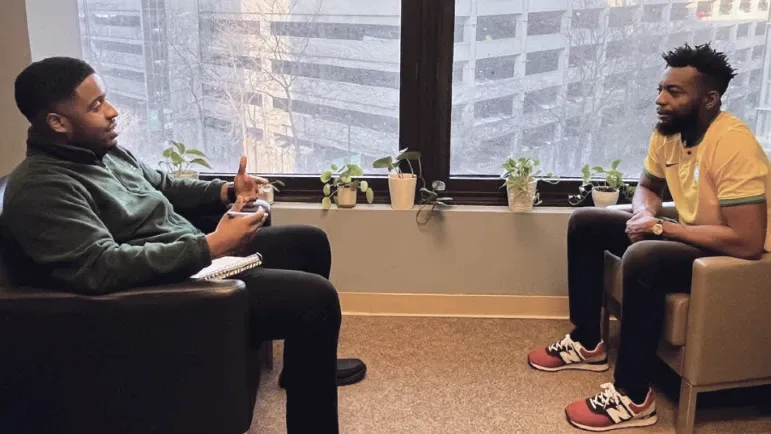Whether they’re helping psychosocially vulnerable patients on Chicago’s West Side address complex social and medical needs or helping faculty, staff and students manage stress, social workers at Rush are on the front lines of the mental health crisis.
“We’re committed to improving access to resources to reduce disparities in mental health outcomes across different groups, and at RUSH, our social workers are leading the charge on pathways toward that goal,” says Rebecca Lahey, MSW, LCSW, director of integrated mental health and wellness with the Department of Social Work and Community Health.
Addressing the community’s needs
To improve access to mental health resources for patients on Chicago’s West Side and surrounding communities, Rush has established an outpatient psychotherapy clinic staffed by 15 licensed social workers. Half of the clinic’s patients self-identify as Black, while one-quarter identify as Latinx.
The team provides trauma-informed individual and group psychotherapy in both English and Spanish, utilizing approaches such as cognitive behavioral therapy (CBT), psychodynamic psychotherapy, dialectical behavior therapy (DBT), eye movement desensitization and reprocessing therapy (EMDR), acceptance and commitment therapy (ACT), in addition to relational and mindfulness-based approaches. They collaborate with other providers on developing comprehensive, patient- centered care plans. “We leverage evidence-based interventions and try to work with each person where they are,” Lahey says.
Advocacy for under-resourced patient populations is also a focus. “Social workers have a lens for social justice as well as a lens for seeing a person in the context of their environment,” Lahey adds.
“We’re committed to improving access to resources to reduce disparities in mental health outcomes across different groups, and at RUSH, our social workers are leading the charge on pathways toward that goal.”
Creating more diversity in the profession to serve under-represented populations is also a priority. In 2022, Rush founded the Legacy Mental Health Fellowship to support emerging minority social work clinicians. The fellowship is a collaboration between the Garfield Park Rite to Wellness Collaborative, Rush’s Department of Social Work and Community Health, and Chicago State University’s MSW program. It is generously funded by Rachel Kohler and Mark Hoplamazian, the ITW Foundation and the Hemmelstein Endowment for Health Equity.
Easing stress, supporting training
Beyond serving those in the community, social workers also partner with the Center for Clinical Wellness to provide free mental health services to all Rush staff, faculty and students. Five full-time social workers provide psychotherapy in-person and via telehealth. In addition, social workers are on call 24 hours a day, 7 days a week to help any Rush employee or student who may need immediate support.
During the COVID-19 pandemic, Rush social workers also stepped up to provide counseling for frontline health care workers, security personnel, housekeeping staff and others dealing with stress. In addition, several social work faculty are engaged in interprofessional education initiatives for Rush University students. For example, social workers at Rush have developed curricula to help students from multiple disciplines understand how they can collaborate to provide better care for older adults, including those with mental health issues.
The breadth of mental health services and training provided by social workers at Rush demonstrates the profession’s versatility, Lahey explains. “Not only can social workers provide these services, but we’re often taking the lead to support our patients,” she says.

